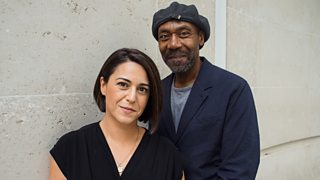
Ludwig van Beethoven: Piano Concerto No 4
In September 1963, three women in Leeds started a piano competition.
In September 1963, The Beatles She Loves You was beginning its long run at the top of the UK charts and the Profumo scandal was in its last throes. But September 1963 was also the month that three women in Leeds started a piano competition.
The three founders of the Leeds Piano Competition were all musicians and important figures on the Yorkshire scene. First, there was the highly respected piano teacher, Fanny Waterman, who was eventually to take sole charge (and would remain at the helm of the competition until her retirement at the age of 95 in 2015). Former singer Roslyn Lyons was Canadian and, as the wife of Leeds businessman Sir Jack Lyons, had turned to philanthropy in the arts. The third in the trio was Marion, Countess of Harewood: pianist, an Austrian emigr茅e, friend of Benjamin Britten and daughter of Erwin Stein, a close collaborator of Schoenberg.
The Leeds, as it rapidly became known, was soon a prestigious landmark on the international circuit for young pianists. But it was also enthusiastically embraced by the Leeds community: an army of volunteers ferried the young pianists around the city, provided refreshments and threw open their living rooms for piano practice - traditions that continue to this day. In 1963, as now, the first rounds were heard in the Concert Hall of Leeds University, up on the hill above the city. From these solo rounds, a handful of pianists would be selected to play with an orchestra in the concerto final, in the Victorian opulence of Leeds Town Hall, down in the centre of town.
The first competition, in 1963, was won by 17-year-old Leeds boy and Fanny Waterman pupil Michael Roll, who soon became a familiar face on the concert scene in the UK and beyond. In subsequent years, some big names won the Leeds: Murray Perahia, Rafael Orozco, Radu Lupu. But it鈥檚 just as interesting to look at the people who came second, third, fourth, fifth and even sixth: Mitsuko Uchida, Viktoria Postnikova, Peter Donohoe, Louis Lortie, Lars Vogt, Kathryn Stott, Noriko Ogawa, Andras Schiff... The juries, too, have featured some starry names. When she was invited to join the jury in 1969, the great teacher and conductor Nadia Boulanger agreed on the condition that there would be strictly no discussion or conferring in the jury room: each juror must vote individually, come to their own decision, unswayed by other views. This is another Leeds tradition which remains unbroken.
2018's competition was the first edition to go ahead without Dame Fanny Waterman at the helm. It was won by the young American pianist, Eric Lu, who moved both jury and public with the fluid poetry of his playing. Dame Fanny was there, every day, in the front rowL at 98, the only survivor of the trio of women who had formed the competition - and the person whose name will forever be synonymous with The Leeds.
This is one of 100 significant musical moments explored by 麻豆官网首页入口 Radio 3鈥檚 Essential Classics as part of Our Classical Century, a 麻豆官网首页入口 season celebrating a momentous 100 years in music from 1918 to 2018. Visit bbc.co.uk/ourclassicalcentury to watch and listen to all programmes in the season.
This is an excerpt from a recording by Eric Lu with the City of Birmingham Symphony Crchestra and conductor Edward Gardner at the Leeds Piano Competition 2018.
Duration:
This clip is from
Featured in...
![]()
The music of Our Classical Century—Our Classical Century
100 recordings to celebrate 100 years of exciting, inspirational, rule-busting music.
More clips from Our Classical Century
-
![]()
Step outside your musical tribe
Duration: 02:49



